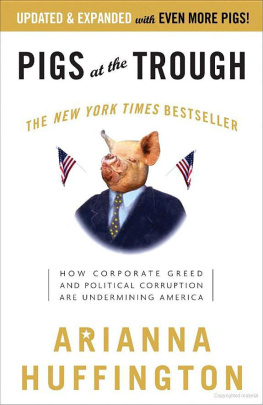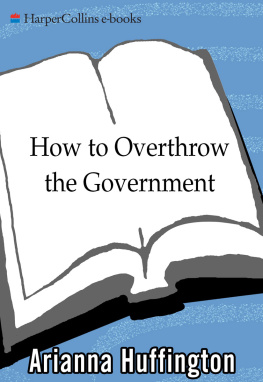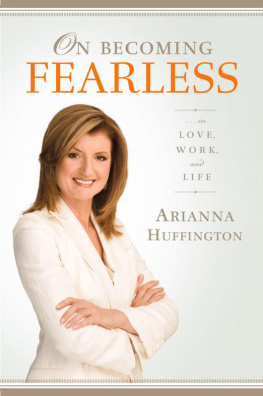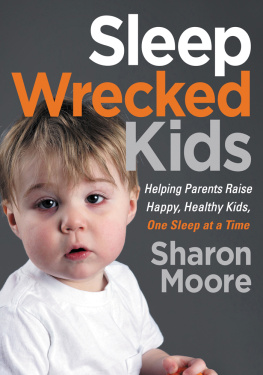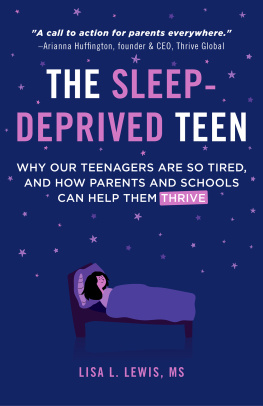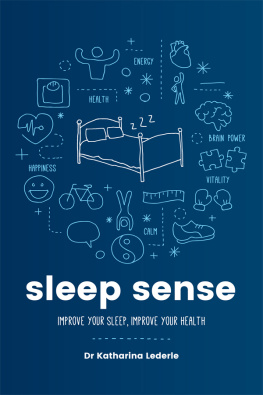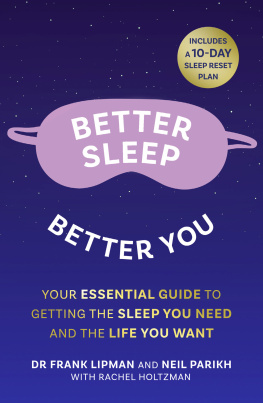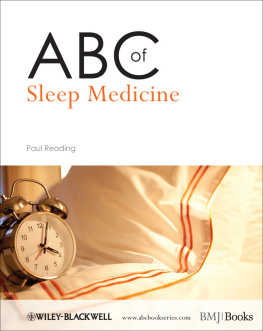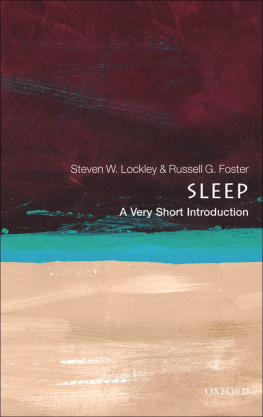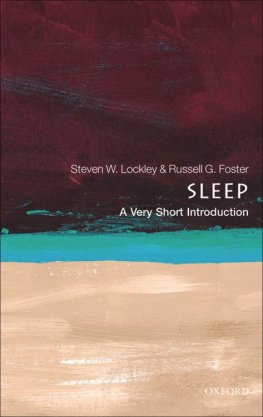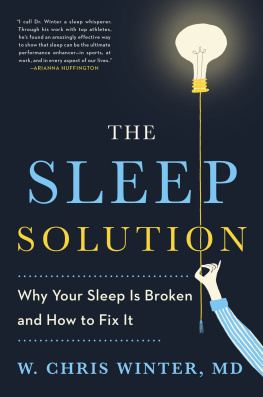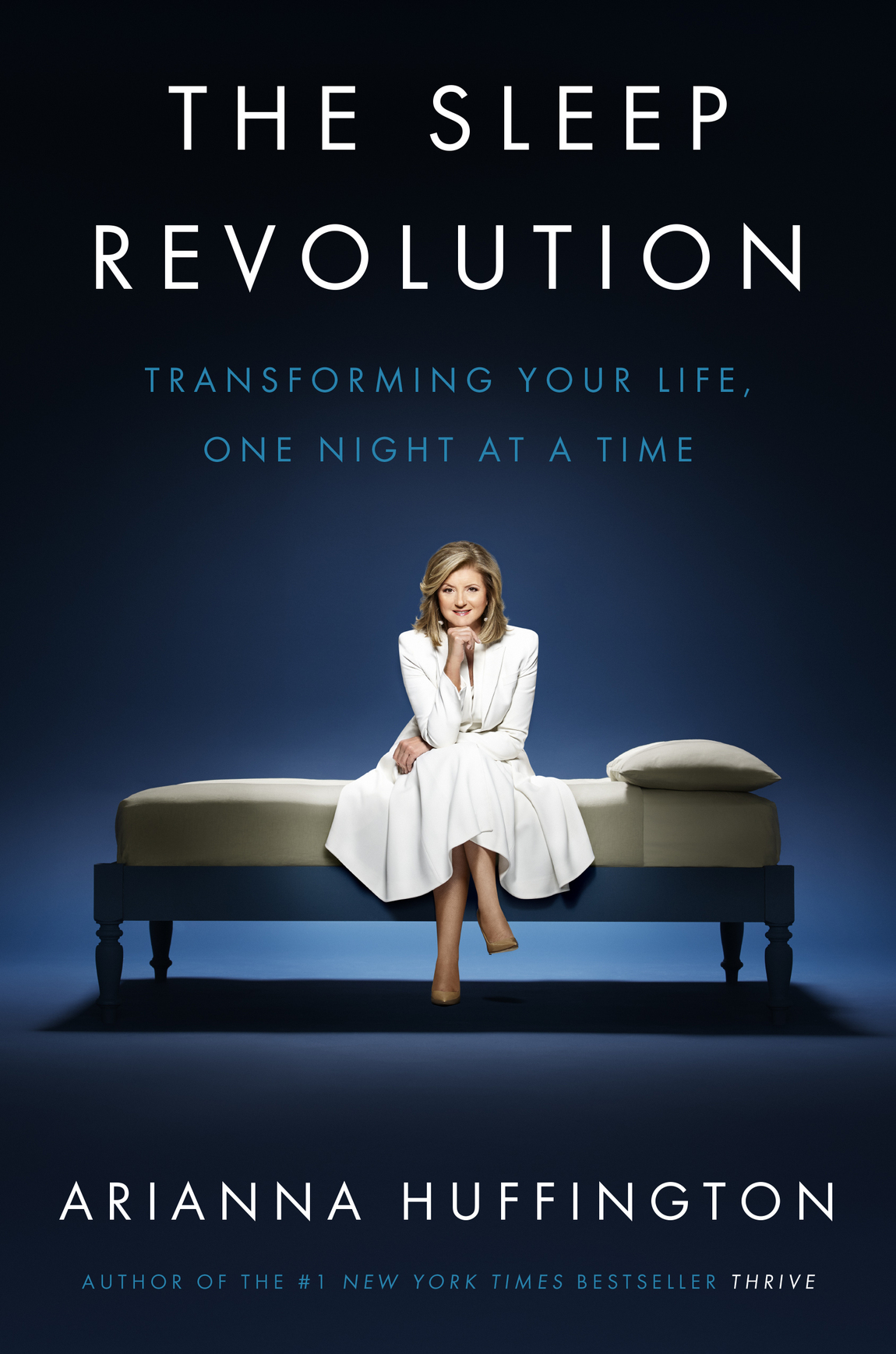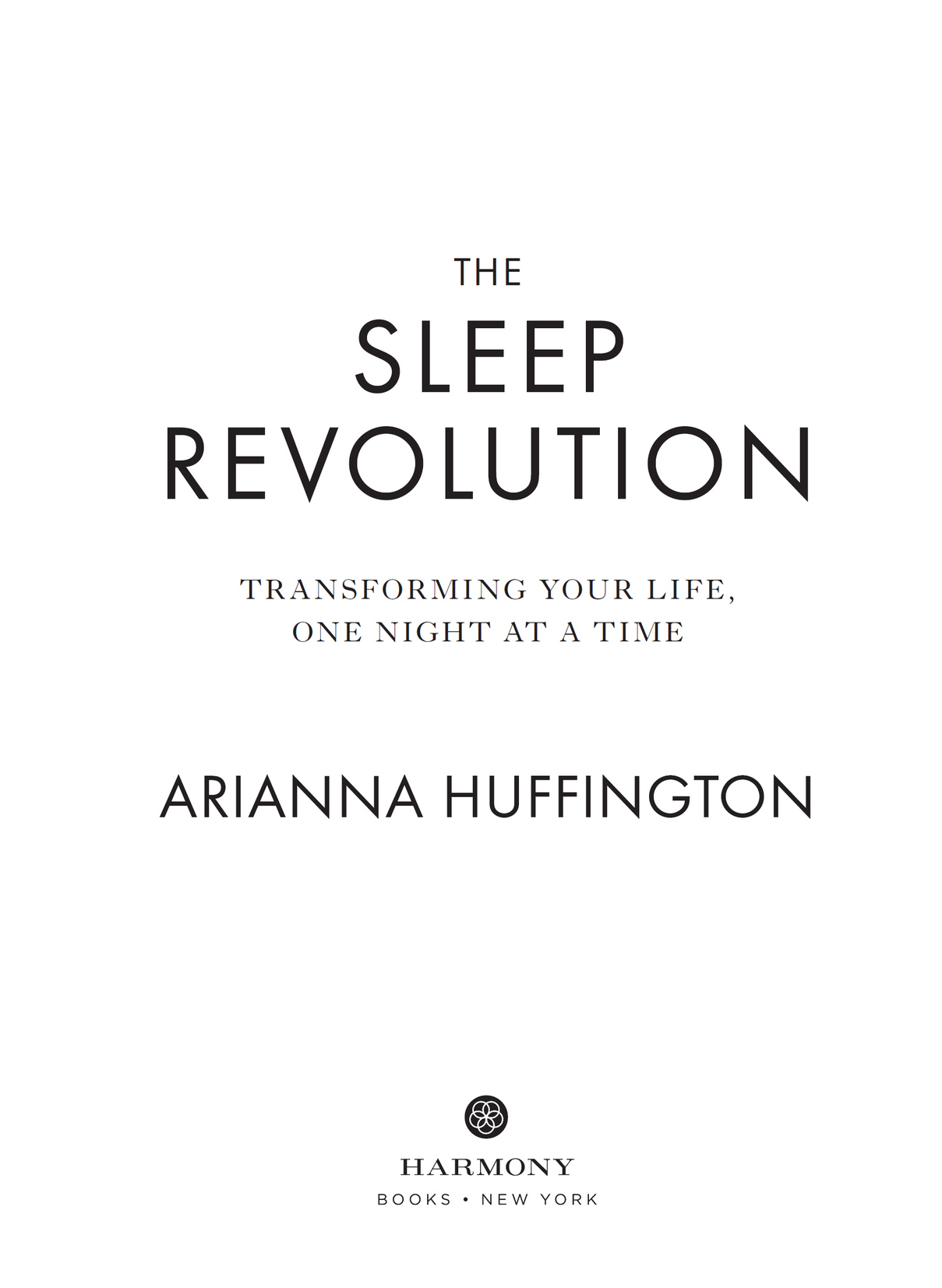All rights reserved.
Published in the United States by Harmony Books, an imprint of the Crown Publishing Group, a division of Penguin Random House LLC, New York.
Harmony Books is a registered trademark, and the Circle colophon is a trademark of Penguin Random House LLC.
Names: Huffington, Arianna Stassinopoulos, 1950, author.
Title: The sleep revolution : transforming your life, one night at a time / Arianna Huffington.
Subjects: LCSH: SleepHealth aspects. | Sleep deprivation |
BISAC: PSYCHOLOGY / Social Psychology.
INTRODUCTION
I grew up in a one-bedroom apartment in Athens where sleep was revered. After my parents separated when I was eleven, my mother, my sister, and I shared that one bedroom. But it was always understood that we should do everything in our power not to wake up anyone who was sleeping. If I had to study after my younger sister went to bed, I would study in the kitchen so the light wouldnt wake her. My mother was adamant about the importance of sleep for our health, our happiness, and our schoolwork. But despite this auspicious beginning, as soon as I left homefirst to study at Cambridge and then to live and work in LondonI bought into the prevalent cultural norm of sleep deprivation as essential to achievement and success. FOMO (fear of missing out) became part of my life long before the acronym was invented (probably by sleep-deprived millennials).
This new sleep-be-damned approach continued for years, until, as I wrote about in Thrive, I collapsed from sleep deprivation, exhaustion, and burnout in April 2007. Id just returned home after taking my daughter Christina, then a junior in high school, on a tour of prospective colleges. The ground rules wed agreed onor, more accurately, that my daughter demandedwere that during the days I would not be on my BlackBerry. But that didnt mean I would stop working (sacrilege!). So each night wed eat dinner late and get back to the hotel exhausted. Then, in some sort of role reversal, Christina would do the responsible thing and go to sleep while I acted the part of the sneaky teenager and stayed up late. After shed fallen asleep, Id fire up the computers and the BlackBerrys, responding to all the urgent emails and generally attempting to squeeze a full days work into what should have been my sleep time. This would go on until about 3 a.m., when I couldnt keep my eyes open any longer. And after three or four hours of sleep, Id be back up for the day shift. Work, after all, was much more important than sleep, at least to my 2007 self. Because, hey, Im running a start-upone thats got my name on it. Clearly Im indispensable, so I must work all night, responding to a hundred emails and then writing a long blog post, while being the perfect mother during the day. This way of working and living seemed to serve me welluntil it didnt.
The only part of that trip I seem to remember clearly is the cold, rainy morning at Brown, walking around in a daze as if it were finals week. About a third of the way into the tour, Christina leaned over to me and said, Im not going to apply herehow about we just drop out of the tour and go get coffee? I felt like Id just been given a get-out-of-jail-free card. Yes, yes! Where is the closest Starbucks? How quickly can we get there? I hope theres no line. Cant wait for my fourth infusion of caffeine of the dayjust the pick-me-up I need to make it to the night shift.
So the college trip was over. But I didnt fly straight home. Instead I flew first to Portland for a speaking engagement that, in my scheduling hubris, Id said yes to, and then on to L.A. that night. After getting home very late, I was up again four hours later for a CNN interview. I have no idea why I said yes, but there is that level of tiredness where you dont actually even notice youre tired because you no longer remember how not being tired feels. Like being drunk, being that tired not only causes you to make bad decisions, but it also makes you unaware that youre in no state to be making decisions at all. I was sleep-walking through my life.
Of course, being Greek, I should have known that hubris always gets punished. And mine was no exception. Once I got to my office after the interview, my body just couldnt take it anymore, and down I went, coming back to consciousness in a pool of blood. And thats how I painfully but powerfully rediscovered what my mother, with no formal education, and certainly no background in health or science, knew instinctively all those years ago in Athens: no matter the constraints, whether a tiny, crowded apartment or a crowded work schedule, sleep is a fundamental human need that must be respected.
Its one of humanitys great unifiers. It binds us to one another, to our ancestors, to our past, and to the future. No matter who we are or where we are in the world and in our lives, we share a common need for sleep. Though this need has been a constant throughout human history, our relationship to sleep has gone through dramatic ups and downs. And right now that relationship is in crisis.
The evidence is all around us. For instance, do you know what happens if you type the words why am I into Google? Before you can type the next word, Googles autocomplete functionbased on the most common searcheshelpfully offers to finish your thought. The first suggestion: why am I so tired? The global zeitgeist perfectly captured in five words. The existential cry of the modern age. And thats not just in New York but also in Toronto, Paris, Seoul, Madrid, New Delhi, Berlin, Cape Town, and London. Sleep deprivation is the new lingua franca.
Though we may not be getting much of it, we certainly talk (and post and tweet) about sleep a lot. There are nearly five thousand apps that come up when you search sleep in the Apple App Store, more than 15 million photos under #sleep on Instagram, another 14 million under #sleepy, and more than 24 million under #tired. A quick search for sleep on Google will bring up more than 800 million results. Sleep isnt just buried in our subconscious; its on our minds, and in the news, as never before.
But even though we now know more about sleep than at any other time in history, and how important it is to every aspect of our physical, mental, emotional, and spiritual well-being, actually getting enough sleep is harder and harder to do. And here is a further paradox: advances in technology have allowed us to pull back the curtain on whats going on while we sleep, but technology is also one of the main reasons our relationship to this fundamental part of our existence has become so compromised.


